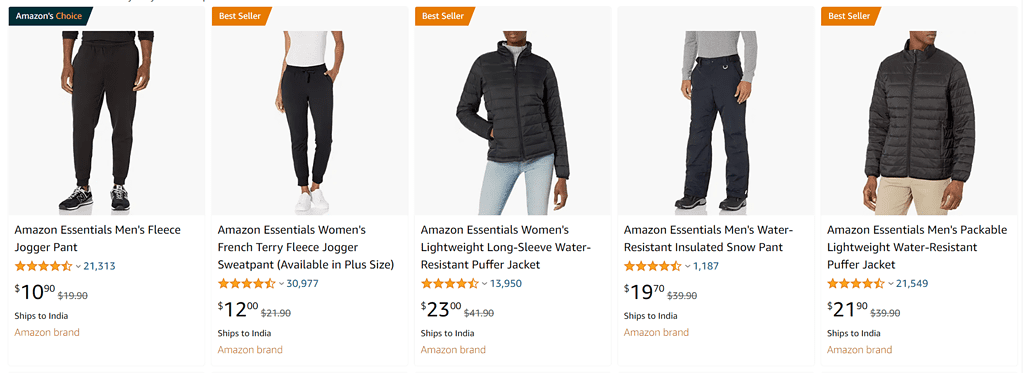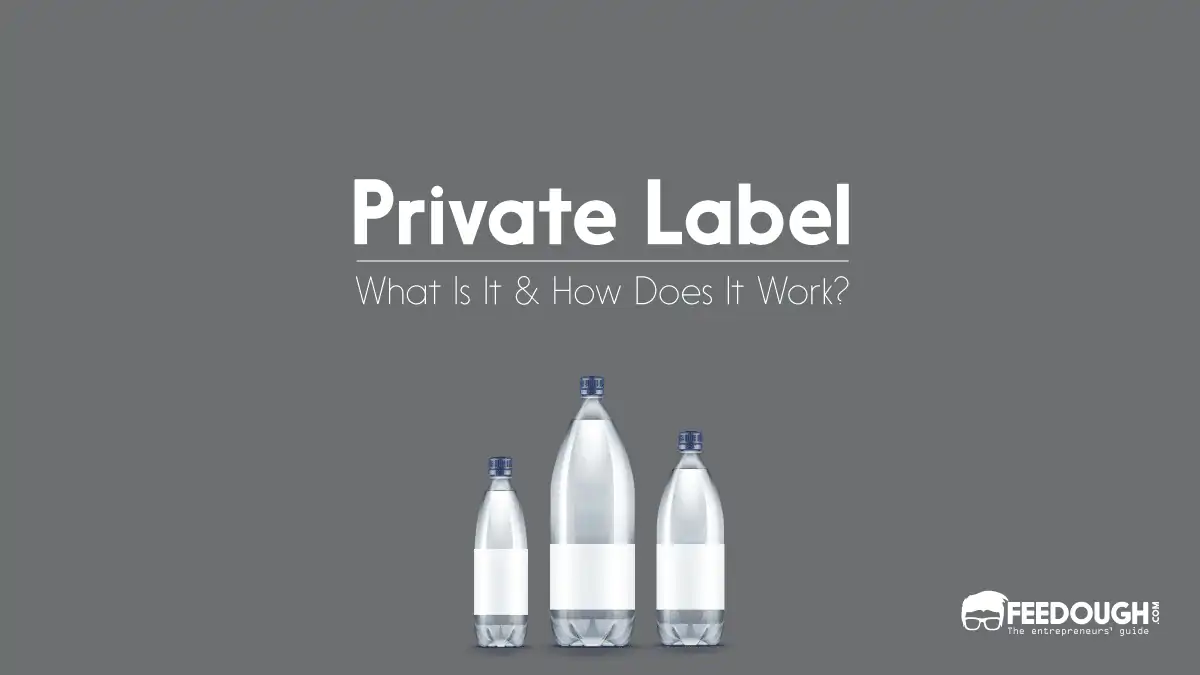In a usual consumer market, companies manufacture their own branded items. This process involves substantial capital, effort, and time, which often proves to be a barrier for not-so-big or fairly new small businesses.
This is where private labelling comes in.
It’s a way to launch a branded product without spending all the money, time and energy on manufacturing it. And since the process involves only the bare minimum of investment, it’s becoming increasingly popular in online and offline markets.
But what is private labelling, how does it work, and what are its advantages and disadvantages?
What Is Private Label?
A private label is a product manufactured or supplied by one company but sold under another company’s brand.
For example, a national supermarket chain may launch its own brand of ketchup and label it with its brand name. However, in reality, the ketchup is manufactured by a third-party manufacturer that remains anonymous.
Also referred to as original equipment manufacturing (OEM), private labelling involves exclusive (non-generic) products with unique designs, features, packaging and marketing plans.
For example, Amazon has its version of private labelling called Amazon Basics, where it sells over 22,000 Amazon-branded products ranging from batteries to bed sheets.
Private label products are typically lower in price than other self-manufactured products as the retailer does not have to incur additional manufacturing or marketing costs. This makes it attractive for businesses to use this strategy to offer customers with a wider variety of options and prices.
How Does Private Label Work?
A private label is more of a product branding strategy than an actual product. It works as follows:
- A brand or retailer enters into an agreement with a product manufacturer to purchase the product in bulk.
- The retailer then works with the manufacturer to create a unique product tailor-made for its customers.
- The retailer puts its label and branding on the product, including a logo, packaging design, and other brand identity markers. There are also contracts where the manufacturers take care of such design needs on behalf of the retailer. The manufacturer, however, remains anonymous.
- The retailer then sells the product at its stores, websites, and other retail outlets as a part of its merchandise line.
Private Label Examples
Private labelling can be applied to virtually any product. A few examples of private-label products are:
- Groceries such as cereal, canned goods, and snacks. Walmart owns a private-label grocery brand named Great Value.
- Clothing such as t-shirts, trousers, jackets and shoes. Amazon owns a private label clothing brand called Amazon Essentials.
- Household items such as detergents and paper towels. Costco’s Kirkland Signature is a well-known example of household products sold under private labels.
- Electronics such as LED TVs and speakers. Best Buy sells a line of private-label electronics under the Insignia brand name.

Advantages of Private Labelling
Private labelling can be very beneficial for retailers in many different ways. The main advantages include:
- Lower Production Costs: Private labelling helps brands save manufacturing costs relating to factory setup, labour, and product development. Furthermore, they can negotiate lower prices with suppliers as they buy in bulk.
- More Control: The manufacturers work at the retailer’s direction; therefore, the brand can closely monitor the production process and product quality.
- Increased Profits: Private labels typically offer higher margins for the retailer than in-house products. This allows retailers to increase their profits significantly.
- Flexibility: Since the private label is contractually based, the retailers can decide to discontinue the product anytime they want. This allows them the flexibility to change their product lines without incurring huge losses.
Disadvantages Of Private Labelling
While private-label products offer numerous benefits to retailers, they also come with certain drawbacks.
- Dependence On Suppliers: Private labels are heavily dependent on the suppliers. The supplier’s failure to deliver quality products can significantly affect the retailer’s business.
- Minimum Order Quantity: Many suppliers have a minimum order quantity requirement. This means that the retailer needs to invest significantly in inventory before they can start selling the product.
- Only partial control: Private labels don’t offer full control to retailers. The supplier still owns and controls the design, manufacturing process and some other aspects of the product. It may lead to the retailer losing control over crucial product decisions.
Difference Between Private Labels And White Labels
While often used interchangeably, white-label products and private-label products are slightly different.
White-label products are generic products manufactured by one company and sold under different brand names. For example, a manufacturer may develop iPhone cover cases, and then sell them to different retailers in bulk. These retailers may label the iPhone cases with their own brand names and market them as if they developed them themselves.
Private label products are exclusive products manufactured by an exclusive contract manufacturer and sold under the retailer’s brand name. For example, a retailer may want to create their own-branded iPhone cases, so they partner with a contract manufacturer who will produce them exclusively. These products carry the retailers’ own brand names and logos.
Private Label | White Label | |
|---|---|---|
Meaning | A private label product refers to an exclusive product that’s under the name of a particular brand. However, it is manufactured through an agreement or third-party entity. | White label products are generic products offered by a manufacturer that may be rebranded through different businesses and marketed as their very own merchandise in small quantities or for resale. |
Ability to customise | Retailer has the overall control when it comes to dictating what its merchandise appearance is like, what they are made with, and more. | White label products which are to be rebranded are already manufactured, restricting the extent of customisation for the business. |
Exclusivity | Private label merchandise is more exclusive. Given their exceptionally custom-designed nature, it is almost not possible for different businesses to market-specific merchandise. | White label merchandise that is manufactured is accessible to a lot of businesses to be sold under their brand name. |
Go On, Tell Us What You Think!
Did we miss something? Come on! Tell us what you think about our article on private label in the comments section.
A startup consultant, digital marketer, traveller, and philomath. Aashish has worked with over 20 startups and successfully helped them ideate, raise money, and succeed. When not working, he can be found hiking, camping, and stargazing.





![AI Porter’s Five Forces Analysis [Unlimited & No Login] Porter’s Five Forces Analysis Generator](https://www.feedough.com/wp-content/uploads/2024/12/Porters-Five-Forces-Analysis-Generator-150x150.webp)



